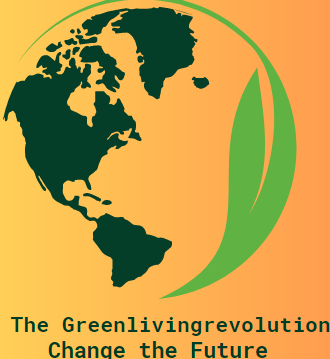Introduction
Composting is an incredibly important and often overlooked part of any garden, farm, or home. Not only does it help to naturally fertilize the ground, but it also reduces the amount of waste that would otherwise end up in a landfill. Taking the time to compost your organic materials can produce amazing rewards for your environment, allowing you to do your part in helping to reduce global pollution. If you a person who looks forward to take small steps to make a greener future, then you will also like this article here about 7 best ideas for sustainable home decor.
With increasing awareness of sustainable practices, composting has emerged as a popular method for improving soil quality and promoting healthy plant growth. In this article, we will explore the benefits, the different types and provide practical tips for successful composting in your garden.
What Is Composting?
Compost is a mixture of organic materials (leaves, grass clippings, kitchen scraps) that is turned into a soil conditioner. It can also be called “rich garden soil” because it has all the nutrients needed for your plants. It is a natural process of recycling organic material into valuable nutrients for the soil. By adopting this, we can reduce the amount of waste going to landfills and improve the soil’s health.
What are the Benefits of Composting?
Soil health and environmental sustainability
Firstly, it enhances soil structure, improving its water-holding capacity and reducing erosion. Compost acts as a natural fertilizer, enriching the soil with essential nutrients, such as nitrogen, phosphorus, and potassium, which are vital for plant growth. The slow-release nature of these nutrients helps maintain a balanced nutrient supply, reducing the risk of nutrient leaching.
Soil Biodiversity
This is achieved by providing a habitat for beneficial microorganisms. These microorganisms break down organic matter further, releasing additional nutrients and creating a favorable environment for healthy plant roots. Compost also acts as a natural soil amendment, neutralizing soil pH and making it more conducive to plant growth.

What are the Different Composting Methods?
There are several methods available, each with its own advantages and considerations. Here are a few popular options:
a. Backyard composting: Compost can be made from most organic materials such as leaves, kitchen scraps, and yard trimmings, and it can improve the health of your soil and plants. You can be as involved as you like with your compost pile: simply stack things up and wait for nature to take its course, or turn, water, and monitor the pile to speed up the process.
When mixed with soil, compost increases the organic matter content, improves the physical properties of the soil, and supplies essential nutrients, enhancing the soil’s ability to support plant growth. Compost can also be applied to the soil surface to conserve moisture, control weeds, reduce erosion, improve appearance, and keep the soil from gaining or losing heat too rapidly.
b. Vermicomposting: Vermicomposting utilizes red worms (Eisenia fetida) to break down organic matter into nutrient-rich castings, also known as vermicompost. Worms consume the organic waste and leave behind their nutrient-rich excrement. It is ideal for those with limited space or who plan to do this activity indoors. It requires a worm bin with proper bedding, moisture control, and a supply of organic waste.

c. Aerated Static Pile Composting: This method involves creating large compost piles, typically on a concrete pad, and providing aeration through the use of blowers or perforated pipes. The piles are periodically turned to ensure proper oxygen flow and decomposition. Aerated static pile composting is well-suited for large-scale operations, such as commercial facilities or farms.
3 Tips for Successful Composting:
To achieve successful composting, consider the following tips:
a. Balance the compost: Maintain a balanced ratio of “browns” (carbon-rich materials like dry leaves, straw, and newspaper) and “greens” (nitrogen-rich materials like grass clippings, vegetable scraps, and coffee grounds). Aim for a ratio of approximately 3 parts browns to 1 part greens to ensure optimal decomposition.
b. Proper aeration and moisture: Regularly turn or mix the compost pile to provide oxygen and promote decomposition. Ensure the compost remains moist, similar to a damp sponge, to support microbial activity. However, avoid excessive moisture, as it may lead to unpleasant odors or the growth of anaerobic bacteria.
c. Avoid certain materials: Avoid composting meat, dairy products, oily foods, and pet waste, as they can attract pests or introduce pathogens into the compost. Additionally, refrain from using invasive weeds or plants with diseases to prevent their spread.
Conclusion
It is no doubt, a powerful tool for soil betterment, offering numerous benefits for both the environment and our gardens. By diverting organic waste from landfills and transforming it into nutrient-rich compost, we can contribute to reducing greenhouse gas emissions and enriching our soils. Whether through backyard composting, vermicomposting, or large-scale operations, anyone can participate in this sustainable practice.
Now, it’s time for you to take action! Start this activity today and witness the positive impact it can have on your garden and the planet. Embrace the power of decomposition, nourish your soil, and join the global movement towards sustainable agriculture and waste management. Start composting today and witness the transformation of your waste into a valuable resource for a sustainable future.Together, we can make a difference, one compost pile at a time!
Frequently Asked Questions(FAQ):
Is composting worth the efforts?
Yes, it is worth to start composting.Composting offers numerous benefits including better soil structure reducing the need for synthetic fertilizers and supports sustainable gardening practices
Can I start composting at home?
Yes, you can start composting at home by selecting a suitable composting method and available compost bins.
Can you use a plastic bucket for compost?
Yes, most of the available good quality plastic buckets are strong enough to be used for composting
Do compost bins smell?
A sure sign of a well-maintained compost bin is its deep earthy smell. A healthy compost should smell like dirt, it shouldn’t smell like rotting egg.

